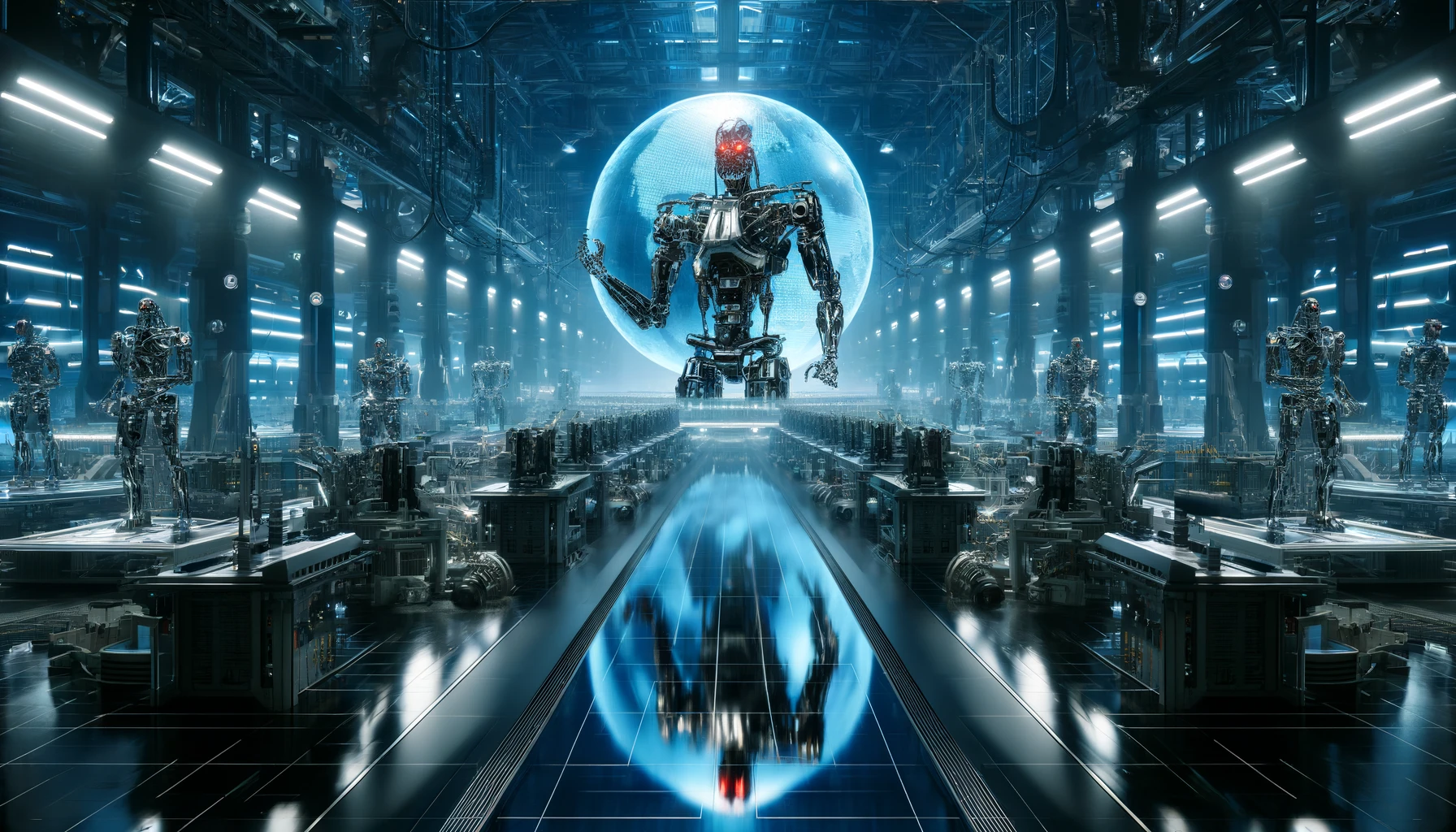In the swirl of rapid technological advancements, artificial intelligence (AI) stands out as a beacon of transformative power, reshaping industries and daily lives. However, with its rise, AI has also brought with it a raft of misconceptions and fears, notably encapsulated by the ‘Skynet’ scenario popularized by the Terminator films. This blog aims to demystify AI, clarifying its real-world applications, addressing common misconceptions, and exploring the ethical dimensions of its development.
Understanding Artificial Intelligence
Artificial intelligence, in its simplest form, refers to machines designed to mimic human intelligence. The terms AI, machine learning, and deep learning often get used interchangeably, but they represent layers of complexity within the broader framework of intelligent systems. AI is the umbrella term, machine learning is a subset of AI that learns from data, and deep learning is a subset of machine learning that uses sophisticated neural networks.
The evolution of AI this century has been marked by significant milestones, such as the development of IBM’s Watson, the AI that defeated human champions in Jeopardy!, and more recently, the creation of models like OpenAI’s GPT-3, which can generate human-like text based on the prompts it receives.
Debunking the Myths: AI vs. Skynet
Skynet — a fictional AI from the Terminator films that gains self-awareness and turns against humanity — is a powerful narrative that has seeped into public consciousness. However, the capabilities of real-world AI are far removed from these science fiction scenarios. Today’s AI systems operate under strict human oversight and are designed with specific, narrow tasks in mind, whether it be translating languages, recommending products online, or optimizing routes for logistics.
Despite rapid advancements, AI lacks consciousness and operates within a set of programmed boundaries. The fears of an AI uprising are unfounded and more reflective of our anxieties about unchecked technological power than the reality of AI technology.
Practical Applications of AI
Across sectors, AI is proving to be a force multiplier, enhancing efficiency and solving complex problems that are otherwise challenging for humans.
- Healthcare: AI systems help diagnose diseases from imaging scans with accuracy surpassing human experts. They also assist in personalizing treatment plans for patients based on their unique genetic makeup.
- Automotive: In the automotive industry, AI powers autonomous driving technologies, improving safety and reducing human error on the roads.
- Finance: AI algorithms play a crucial role in fraud detection, risk assessment, and customer service automation, allowing financial institutions to offer more secure and efficient services.
- Customer Service: Virtual assistants, powered by AI, handle routine customer queries across various industries, enhancing service availability and freeing human employees to tackle more complex issues.
Ethical Considerations and AI Safety
As AI becomes more integrated into societal functions, ethical considerations rise to the forefront. Key concerns include:
- Bias in AI: AI systems can inherit biases present in their training data, leading to unfair outcomes in areas like job recruitment, law enforcement, and loan approvals.
- Privacy: With AI systems processing vast amounts of personal data, safeguarding user privacy is paramount.
- Control and Safety: Ensuring that AI systems perform as intended without unexpected behaviors is a continuous challenge for AI researchers.
Organizations and developers are increasingly focusing on creating transparent, fair, and accountable AI systems to address these issues.
Preparing for the Future with AI
Embracing AI requires a proactive approach:
- Education and Awareness: Businesses and individuals should invest in AI literacy to understand how AI tools can be used and the implications of their deployment.
- Policy and Regulation: Policymakers need to develop regulations that ensure AI is used ethically and benefits are distributed equitably across society.
Charting the AI Horizon
The ascent of artificial intelligence marks not a slide toward dystopia but the dawn of expansive new possibilities in every sector. Understanding the true scope and boundaries of AI empowers us to fully leverage its capabilities while addressing its risks. If AI intrigues you, or if you’re considering integrating this transformative technology into your operations, reaching out for detailed guidance is essential.
We invite you to dive deeper into the ever-evolving realm of AI with us. Contact us today to uncover how artificial intelligence can revolutionize your business. We also encourage you to share your thoughts and questions below — let’s start a conversation on how AI is reshaping our world and how we can navigate this exciting journey together.

